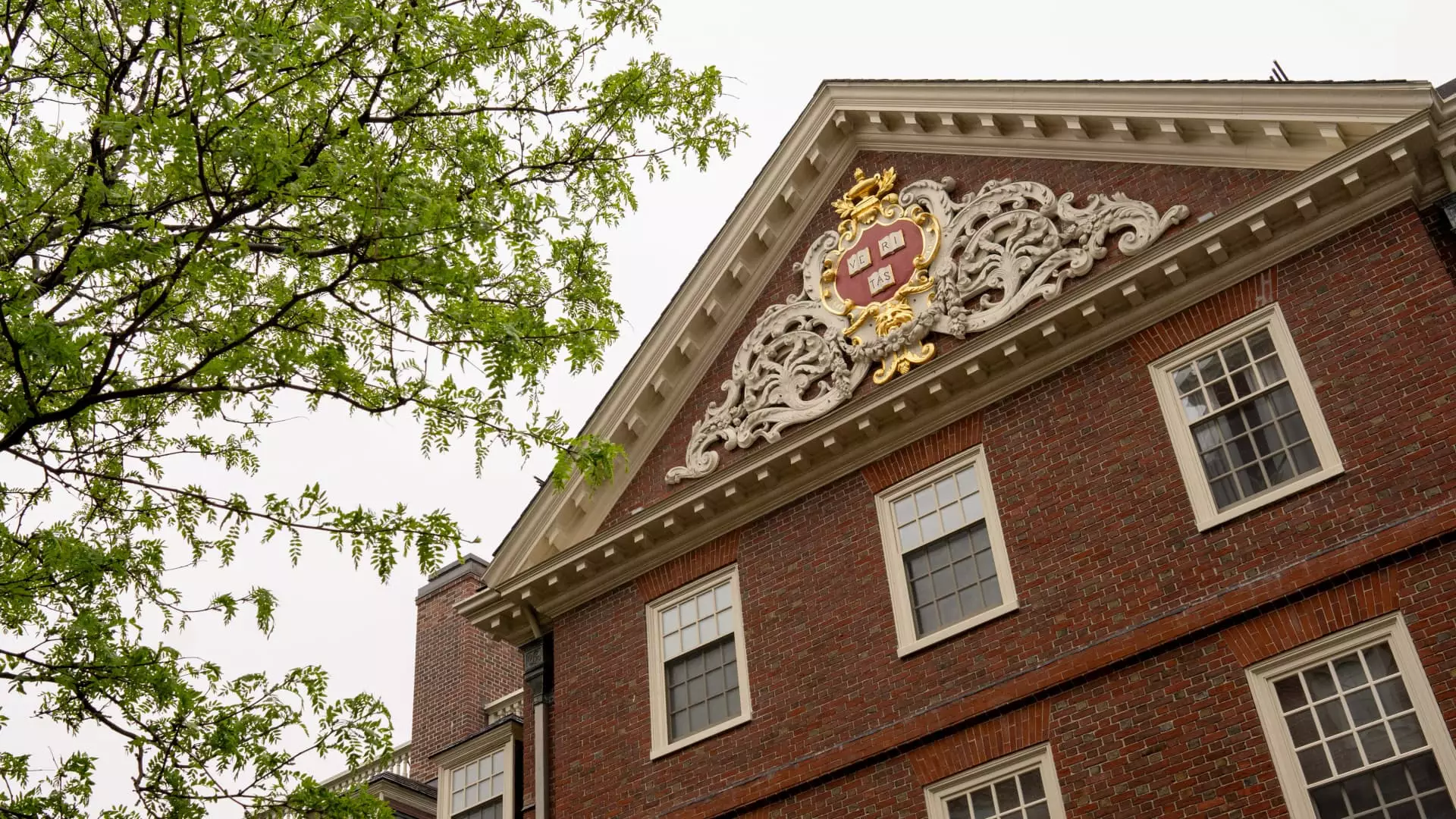In an alarming display of political maneuvering, President Donald Trump has recently suggested diverting approximately $3 billion in federal grant money away from Harvard University to support trade schools instead. This bold proposal comes as part of Trump’s ongoing campaign against institutions of higher education, particularly those he labels as bastions of liberal ideology. By subjugating scientific research funding to his political whims, Trump not only undermines the integrity of research but also threatens the foundational principles of academic freedom and independence.
Trump’s disdain for Harvard has been palpable, particularly as he targets it for hiring faculty that challenge his administration’s agenda. His rhetoric—referring to professors as “Radical Left idiots”—is not merely colorful language; it symbolizes a deepening hostility toward intellectual discourse that does not align with his worldview. In denying this prestigious institution critical funding intended for biomedical research, Trump is wielding the power of the presidency like a blunt instrument, rendering academic institutions pawns in his larger political game.
Impact on Scientific Research
The ramifications of Trump’s proposed funding cuts extend beyond mere financial implications. Most of the grants in question are appropriated by Congress for the National Institutes of Health with the objective of fostering groundbreaking scientific advancements. Reducing funds allocated to a leading research university like Harvard could stifle innovation at a time when the world is grappling with serious public health issues, such as the ongoing pandemic or climate change. By insisting on funneling resources into trade schools—a sector that focuses more on vocational training than cutting-edge research—Trump risks sacrificing the comprehensive inquiry that is the hallmark of esteemed universities.
To remove such funding based on a personal vendetta diminishes our collective potential and undermines the collaborative spirit that characterizes scientific work. Harvard has expressed concerns over the fundamental violations of free speech inherent in these policies, asserting that they represent an unconstitutional assault on academic institutions that strive for independence from political oppression. Any political leader should recognize that undermining academic freedom ultimately jeopardizes their capacity to lead society toward informed, evidence-based decisions.
The Broader Context of Political Hostility
This turbulence isn’t an isolated event; rather, it forms part of a disturbing trend in which Trump and his allies have consistently attacked the academy, media, and various institutions perceived as antagonistic to their political agenda. Harvard, representative of elite institutions, has been at the forefront of this battle primarily because it epitomizes the intellectual resistance to Trump’s populist rhetoric and policies.
Furthermore, in seeking to revoke foreign student enrollments, Trump’s administration threatens to dismantle the rich diversity that international students contribute to academic life. These students represent a significant portion of Harvard’s enrollment and tuition revenue, and Trump’s actions demonstrate a misguided belief that these individuals are somehow threats rather than assets to higher education. By attempting to enforce his ideological orthodoxy onto institutions that thrive on diverse perspectives, Trump not only limits the richness of academic discourse but also pushes away talent that could be significant for America’s future.
A Call for Accountability in Higher Education
While some may argue that universities should be held to account for perceived liberal biases, it is crucial to differentiate between legitimate critique and an outright assault on academic institutions. The proposed policies—such as the potential revocation of Harvard’s tax-exempt status and the scrutiny of its hiring processes—are part of a broader attack on liberal academia that is unfortunately becoming normalized in American political discourse. This trend could lead to an era where universities feel pressured to bow to political interests rather than academic rigor.
Therefore, we must rally to protect the integrity of higher education from invasions of partisan ideology. Whether through principled litigation or active advocacy for the arts and sciences, the resistance to this erosion must be robust. The future of American democracy depends on nurturing institutions that can openly challenge the status quo and push the envelope of human knowledge and creativity.

